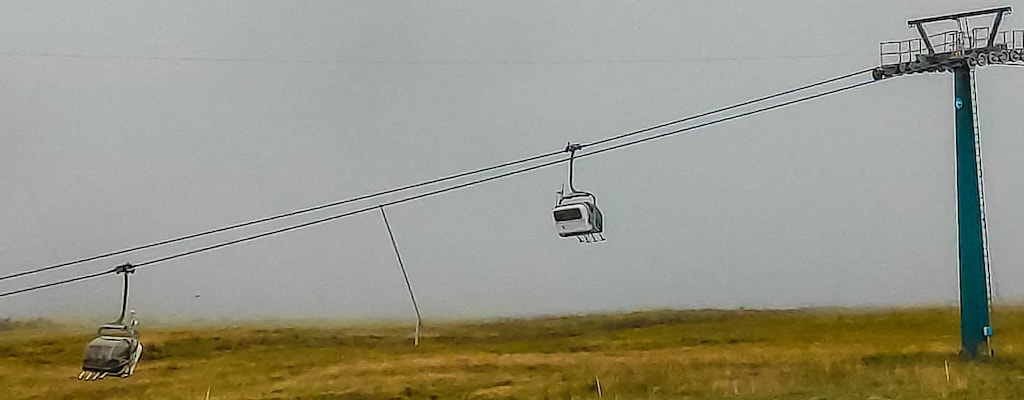like there is no tomorrow: Idiom Meaning and Origin
What does ‘like there is no tomorrow’ mean?
The idiom "like there is no tomorrow" means doing something with great urgency, enthusiasm, and without any thought for the consequences or future. It implies that one is living in the present moment as if there is no future to worry about.

Idiom Explorer
The idiom "take one day at a time" means to focus on the present moment and not worry about the future or past. It emphasizes living in the present and taking things as they come, rather than getting overwhelmed by the big picture.
The idiom "seize the day" means to take advantage of the present moment and make the most of opportunities before they pass. It encourages living life to the fullest and not wasting time or delaying actions or decisions.
The idiom "now or never" means that something must be done immediately or it will never be possible to do it. It emphasizes the urgency of taking action without delay.
The idiom "much ado about nothing" means making a fuss or creating a big deal out of something that is unimportant or insignificant.
The idiom "move on" means to leave a situation or past event behind and continue with one's life or focus on something else.
The idiom "might as well" means to do something because there is no more productive or sensible alternative. It implies that the decision to proceed is not based on enthusiasm or conviction, but rather on resignation or practicality.
The idiom "may as well" means that a certain action or decision is advisable or logical in a given situation, even if there might be other options available. It suggests that choosing this option is the most reasonable or practical course of action, given the circumstances.
The idiom "matter of time" means that something is certain to happen eventually, although it may not happen immediately or in the present moment.
The idiom "matter of life and death" is used to convey a situation or decision that is extremely urgent, critical, or important, often with serious consequences.
The idiom "make the best of one's way" means to do the best one can in a given situation or make the most favorable decision possible.
"The Unbridled Urgency"
Like there is no tomorrow is an idiomatic phrase that is often used to express a sense of urgency or extravagance in the way someone is doing something. It suggests that the person is doing the action now or never, without considering the consequences or limitations. The origins of this idiom are unclear, but it is commonly used in American English and conveys a sense of living in the present moment without concern for the future.
The phrase "like there is no tomorrow" can be traced back to the early 20th century. It is believed to have originated from the concept of carpe diem, a Latin phrase meaning "seize the day." The idea behind carpe diem is to make the most of every opportunity, taking one day at a time. In a similar vein, "like there is no tomorrow" emphasizes the importance of living in the present and making the most of the current moment without delaying or hesitating.
One possible explanation for the popularity of this idiom is the influence of popular culture, particularly in the United States. In movies, books, and songs, there is often a focus on grabbing every chance and embracing the present moment, as if there were no tomorrow. This concept is reinforced by the phrase itself, which suggests a disregard for the future and a desire to make the most of the here and now.
Another possible influence on the usage of this idiom is the fast-paced, consumerist society in which many people live. In a world where everything seems to be available instantly, there is a tendency to seek immediate gratification and not worry about the consequences. The phrase "like there is no tomorrow" reflects this mindset of living in the moment and not delaying or postponing actions, embodying the idea of now or never.
Despite its carefree and adventurous connotations, the idiom "like there is no tomorrow" can also carry a sense of recklessness or impulsivity. It implies a lack of consideration for the future and a disregard for the potential consequences of one's actions. While the phrase can be used in a positive or celebratory context, it can also be used to criticize someone for their excessive or thoughtless behavior, highlighting the importance of taking one day at a time and not rushing without evaluating the potential outcomes.
Overall, "like there is no tomorrow" encompasses the essence of living in the present moment without concern for the future. It conveys a sense of urgency, extravagance, and a desire to seize the day, as if there were no other opportunities. Whether used positively or negatively, this idiom reflects the cultural values and mindset of a society that embraces instant gratification and prioritizes the present over the future, emphasizing the need to make the most of each day.
Example usage
Examples of how the idiom "like there is no tomorrow" can be used in a sentence:
- She danced at the party like there is no tomorrow.
- He spent money on shopping like there is no tomorrow.
- They ate the cake like there is no tomorrow.
More "Expressions" idioms



